A film about a woman who swam for 45 hours straight, seeing in the New Year here in Rotherham in the early 1930s, is being released in cinemas this March.
Vindication Swim dives into the world of endurance swimmer Mercedes Gleitze who broke many national and international records.
In Rotherham, she swam for two days at the former Corporation Baths on Main Street, cheered on by thousands of spectators. She started on the stroke of midnight, 31st December 1931 and was pulled from the pool 45 hours and 75,600 strokes later at 9pm on 1st January 1932.
A year-and-a-half earlier, Mercedes had swum for 36 hours at Sheffield’s Glossop Road baths. She completed 27 indoor endurance swims in corporation pools between 1929 and 1933, increasing her British record from 26 to 47 hours.
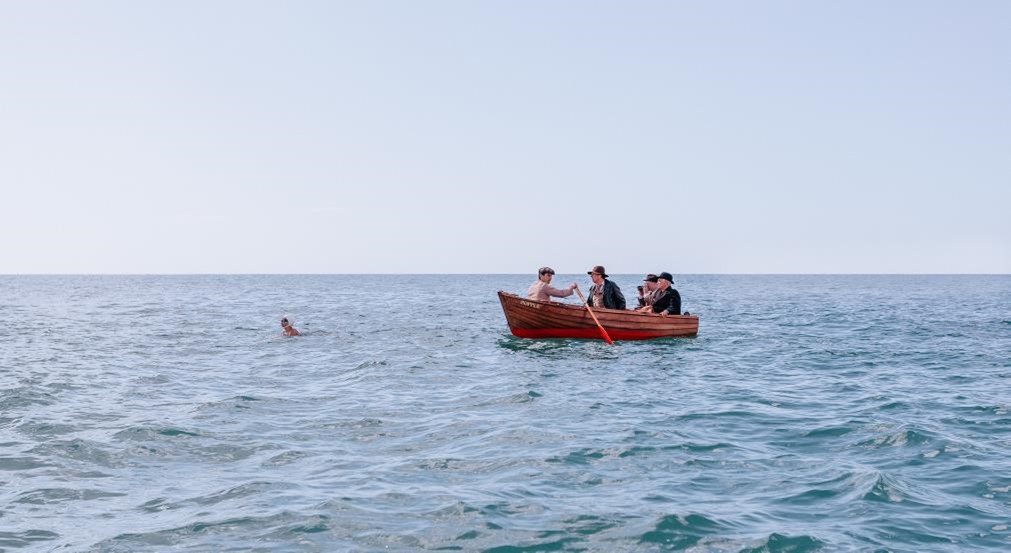
The film, produced by Relash Films, focuses on the lengths Brighton-born Mercedes went to as a professional open water swimmer.
She became the first British woman to swim the English Channel in October 1927 after eight attempts. However, she was forced to do a ‘vindication’ swim two weeks later after a rival came forward claiming to have beaten Mercedes’ time of 15 hours 15 minutes just days prior.
The claim was a hoax, but it threw Mercedes’ record and legacy under a cloud of doubt.
Vindication Swim has been written and directed by 23-year-old Elliott Hasler, Britain’s youngest award-winning filmmaker. Also from Brighton, Elliott says the synergy between Mercedes and himself is what drew him towards creating a biopic.
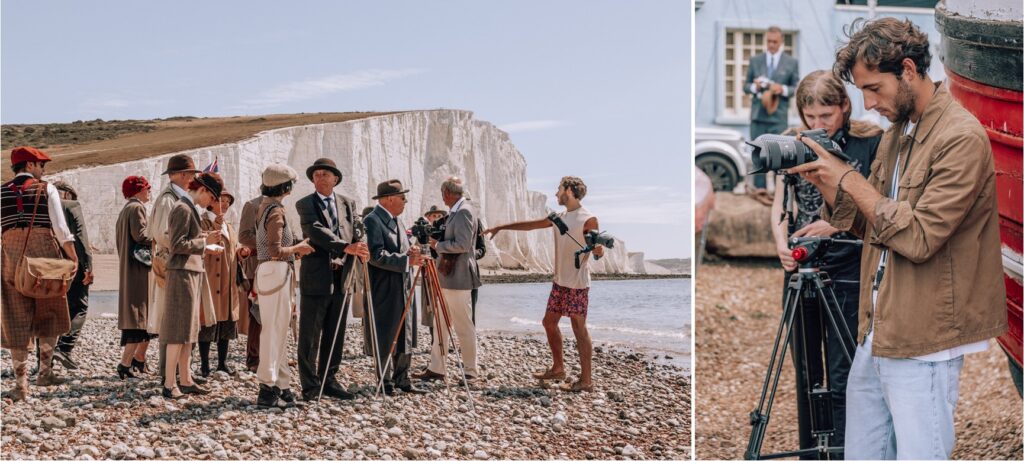
“She was born in Brighton in 1900 and I was born there a century later in 2000. I had never heard of Mercedes until I read an article about her. I found the historical aspect of her story fascinating. She defied expectations of her time. During the oppressive 1920s in England, it was thought of impossible for a woman to do such a thing. But it also serves as a reminder to never give up on your dreams,” Elliott says.
A story of female empowerment and the collective strength of women, it’s fitting that the film is being released on International Women’s Day, Friday 8th March.
Elliott has pooled together some of the film industry’s greatest talents including fellow producer Sally Humphreys Wood (the wife of Rolling Stones’ Ronnie) and former Lionsgate UK & Europe president, Nicola Pearcey.
After spending a year writing the screenplay, filming began on the southeast coast in summer 2019. But production was shut down three times due to the pandemic in 2020, delaying the release by a year.
“Luckily we had already shot a lot of the big scenes in the winter of 2019 so it just left all the sea parts to do. These were the most challenging parts due to the logistics of being outside in the fresh air with the reflection of the water. The weather played a big part as a change from sun to cloud or vice versa could ruin a shot,” Elliott says.

Brighton actress Kirstin Callaghan takes up the lead role in her debut film. As well as a striking resemblance to Mercedes, keen swimmer Kirstin agreed to do all the water scenes herself.
“Everything you see in the water is real. There were no stunt doubles, no tanks, no blue screens. Kirstin trained for months in the Channel before we started filming.”
Mercedes’ rival, Edith Gave, is played by Hollywood actress Victoria Summer, who starred as Julie Andrews in Saving Mr Banks.
Other lead actors include John Locke (Darkest Hour, The Favourite) as Mercedes’ trainer Harold Best, Douglas Hodge (Alfred in The Joker, Paul Burrel in Diana) as a newsreader, and James Wilby (Poldark, Victoria) as Edith’s trainer.
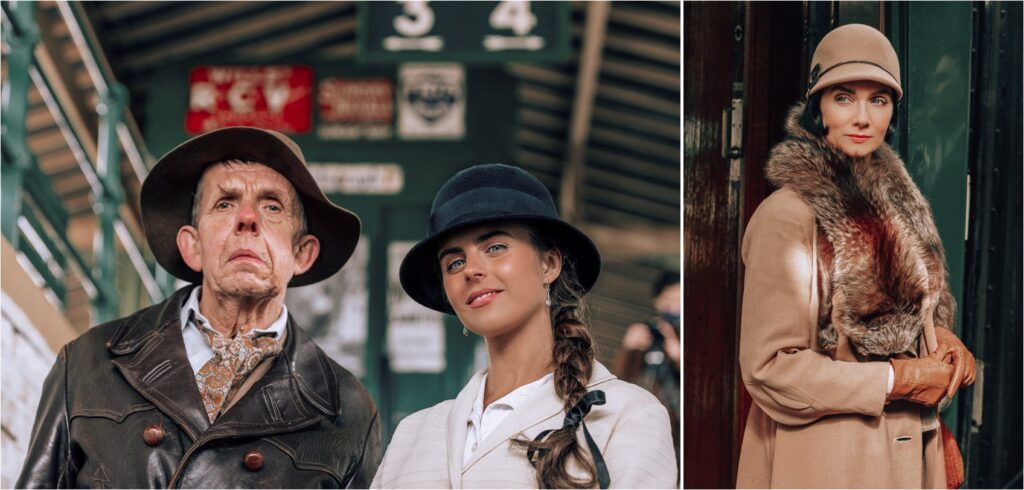
Vindication Swim is Elliott’s second feature-length film. His first film, WWII: The Long Road Home, was produced while he was still at school but garnered the then-16-year-old critical acclaim as ‘the next Spielberg’. Elliott says his latest biopic is his first professional film and is on a much grander scale than anything the self-taught filmmaker has created before.
Elliott worked with Warner Bros De Lane Lea Studios for post-production to create his vision of resurrecting the classic British style of cinema he grew up watching from the likes of Sir David Lean (Lawrence of Arabia and Dr Zhivago).
Senior colourist, Asa Should, who worked on Netflix’s The Crown, constructed a juxtaposition between black and white land-based scenes and vibrant water scenes. The finished result is not too dissimilar to Wizard of Oz; Mercedes had a dull monotone existence until her world came alive in the water.
The film’s score has been composed by Daniel Clive McCallum who orchestrated the music for the Rio 2016 Olympics, created the theme tune to La Liga, and worked on the score for The Hobbit: An Unexpected Journey.
Vindication Swim (PG) will be released in cinemas on Friday 8th March. Watch it in South Yorkshire at The Light, Sheffield (The Moor S1 4PF).
Find out more at www.vindicationswimfilm.com
Who was Mercedes Gleitze?
Once a pioneering poster girl for women in sport, Mercedes’ legacy had faded from history since her death in 1980. Even her own grandchildren didn’t know anything about her record-breaking achievements in and out of the water.
Born in Brighton in 1900, Mercedes led a relatively normal lifestyle as a typist until she decided to take up endurance swimming in the early 1920s.
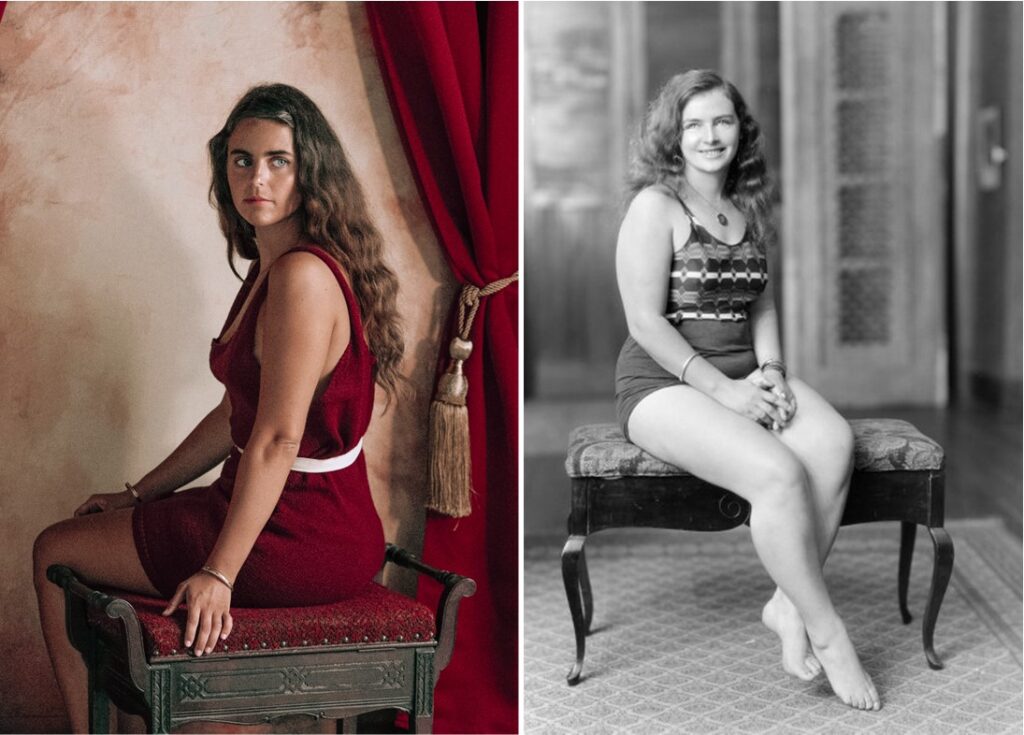
Her first record was swimming in the Thames for 10 hours 45 minutes in 1923 – the longest time for a woman.
In 1927, aged 26, she became the first British woman to swim the 21-mile English Channel. This was followed the year after by Mercedes becoming the first person to swim the Straits of Gibraltar, the 13km stretch of water between Spain and Morocco.
Other open water feats included swimming the Dardanelles on her honeymoon, swimming 100 miles around the Isle of Man, and being the first person to swim from Cape Town to Robben Island and back.
She never wore a wetsuit or a swimming cap, only a regular swimming costume, and was sustained by a diet of Lipton’s Iced Tea, hot soup, grapes, and sometimes a sandwich.
Mercedes earned many endorsements for her open water swimming, in particular Rolex. Ahead of her Channel swim, she was gifted an Oyster watch, the first waterproof watch, to wear during the challenge. Rolex used Mercedes in their Oyster advertising campaign afterwards.
She became a role model in the emergence of the ‘new women’ of that era – those from the working class, unmarried and with no financial support from others. These women were setting the world alight, having escaped from the shadows of men.
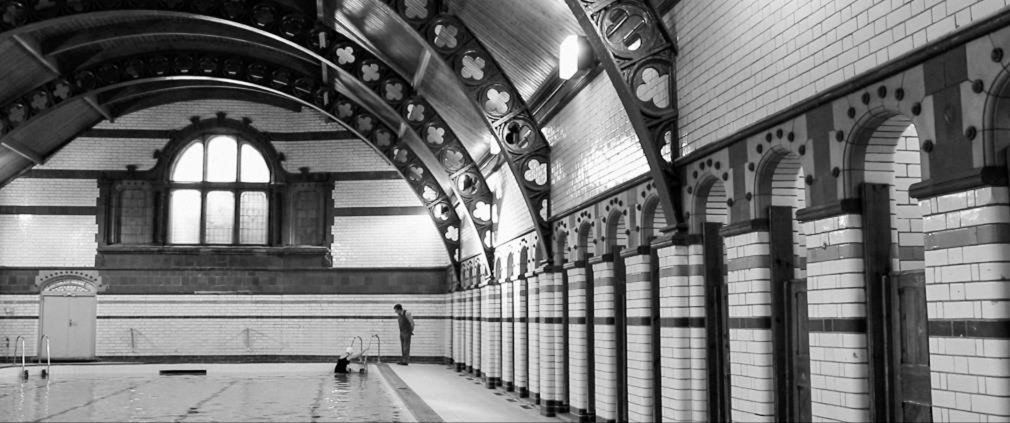
Towards the end of the 1920s, she set about travelling around corporation pools in England to beat the British records for endurance swimming. Starting in Edinburgh in 1929, where she swam for 26 hours, she completed 27 swims over the next four years, finishing in Worthing in 1933 having increased her record to 47 hours.
These unique events attracted thousands of spectators and were usually accompanied with live entertainment from brass bands, vocalists and jazz music. She often surprised audience by reading the newspaper, eating beef sandwiches, and trying to fight off sleepiness as she swam through the night.
In Rotherham, when she swam through two days, the Main Street baths were packed to capacity. Those fortunate to have a seat inside were asked to leave halfway through to allow for those waiting outside to have the chance to see Mercedes swim.
Tickets were sixpence for adults and one penny for children; Mercedes earned half of all ticket sales plus a fee from each corporation she visited. While in the Rotherham, Mercedes wanted to visit a coal mine and had a tour of the coalface to see the conditions faced by miners.
The money earned throughout her career enabled Mercedes to set up her own charity – the first sportswoman to do so. She opened a home for destitute men and women in Leicester in 1933 after she retired from swimming.
Mercedes went on to marry and have three children. She became very reclusive and her story went untold for many decades.






